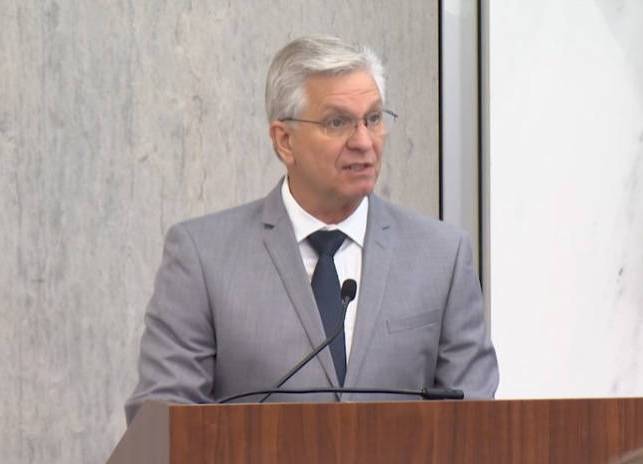Christopher Waller, a member of the Federal Reserve Board, said that the latest economic data support keeping interest rates unchanged, but if inflation behaves as it did in 2024, policymakers might “at some point this year” consider cutting rates again.

Waller said in a speech in Sydney on Tuesday: “If the winter lull this year is only temporary, as it was last year, then further easing of policy would be appropriate. But until the situation becomes clearer, I tend to keep the policy rate unchanged.”
The Federal Reserve cut interest rates by one percentage point in the final months of 2024 and then kept them unchanged at its January policy meeting. New data shows that the consumer price index rose by 0.5% in January, the biggest increase since August 2023, suggesting that the decision was correct.
Waller said the data released last week was “slightly disappointing”, but he emphasized that the forecast for the personal consumption expenditures price index, the inflation gauge favored by the Fed, was not so worrying.
The estimated figures he cited were that the core PCE, excluding food and energy, might have risen by about 0.25% in January and increased by 2.6% compared with the same period last year.
Waller also expressed doubts, along with a Fed official, about whether the CPI data had been appropriately adjusted for seasonal factors.
Waller said, “Over the past few years, inflation data has seemed to show a higher trend at the beginning of the year. This trend raises questions about whether the inflation data has ‘residual seasonality’, meaning that statisticians have not yet fully corrected for obvious seasonal fluctuations in certain prices.”
The Bureau of Labor Statistics attempts to eliminate the influence of certain seasonal factors (such as repetitive patterns of climate, production or price increase cycles) from the data in order to make meaningful monthly inflation comparisons.
Philadelphia Fed President Patrick Harker also expressed similar concerns on Monday.
“Over the past decade, the CPI inflation rate in January has unexpectedly risen in nine out of ten cases,” Harker said. “My guess is that seasonal adjustments have struggled to keep up with the rapidly changing economy, and we need to extract the underlying trend from the monthly noise.”
Waller said he would monitor the data and then decide whether the increase in the reading was due to residual seasonal factors or “other issues”.
“Either way, the data does not support a reduction in the policy rate at present,” he said. “But if the situation in 2025 is the same as in 2024, then a rate cut at some point this year would be appropriate.”
Waller acknowledged that the policies of the new Trump administration have brought a certain degree of uncertainty, but he warned against delaying the Fed’s response to economic data as a result.
“Even in the face of huge uncertainties in the economic outlook, we need to act based on the data that will be released soon,” he said. “Waiting for economic uncertainties to dissipate will only paralyze policy.”
He also restated his expectation that the tariffs imposed by the US government “will only slightly raise prices and will not last.”
He acknowledged that the impact of these policies on prices might be greater than he had expected, but added that “other policies under discussion could have positive supply effects and exert downward pressure on inflation.”


